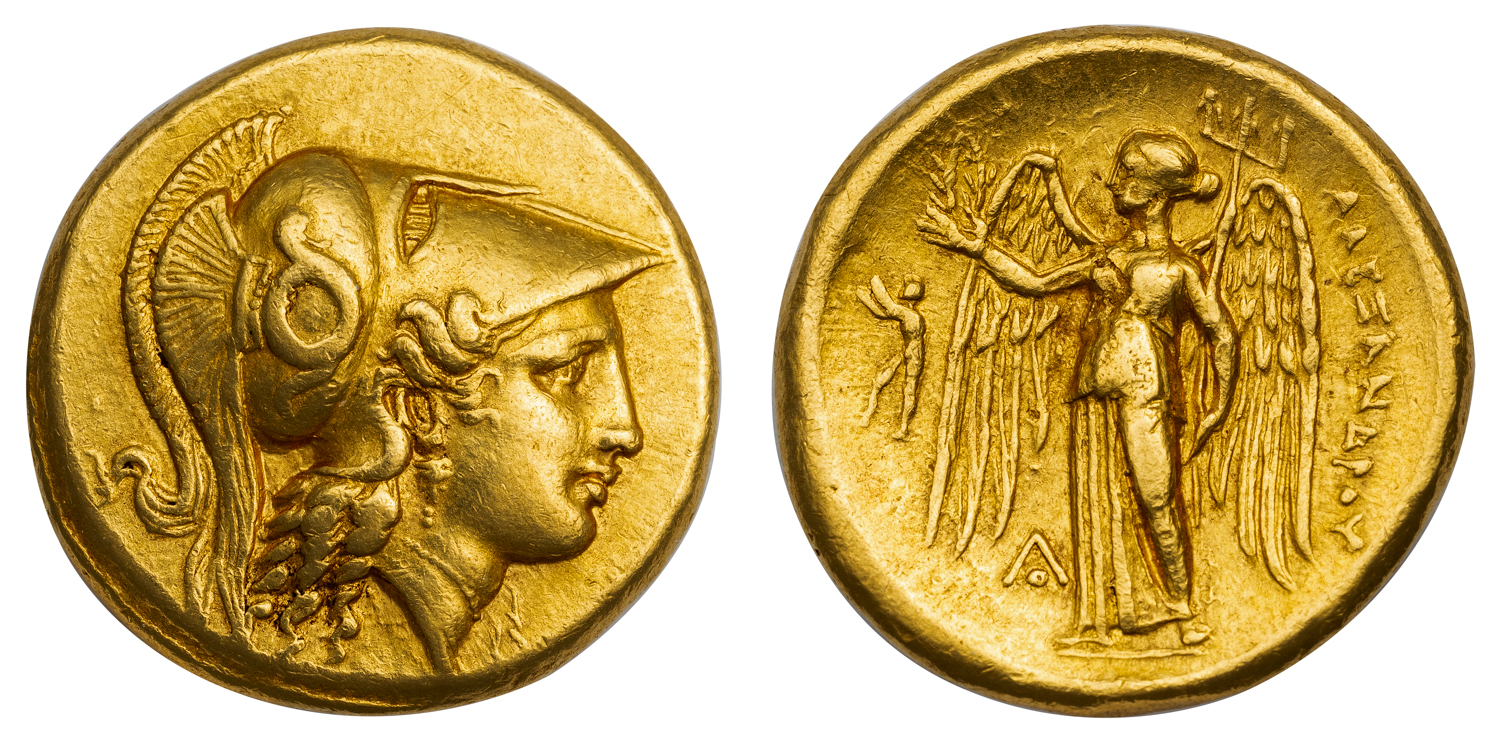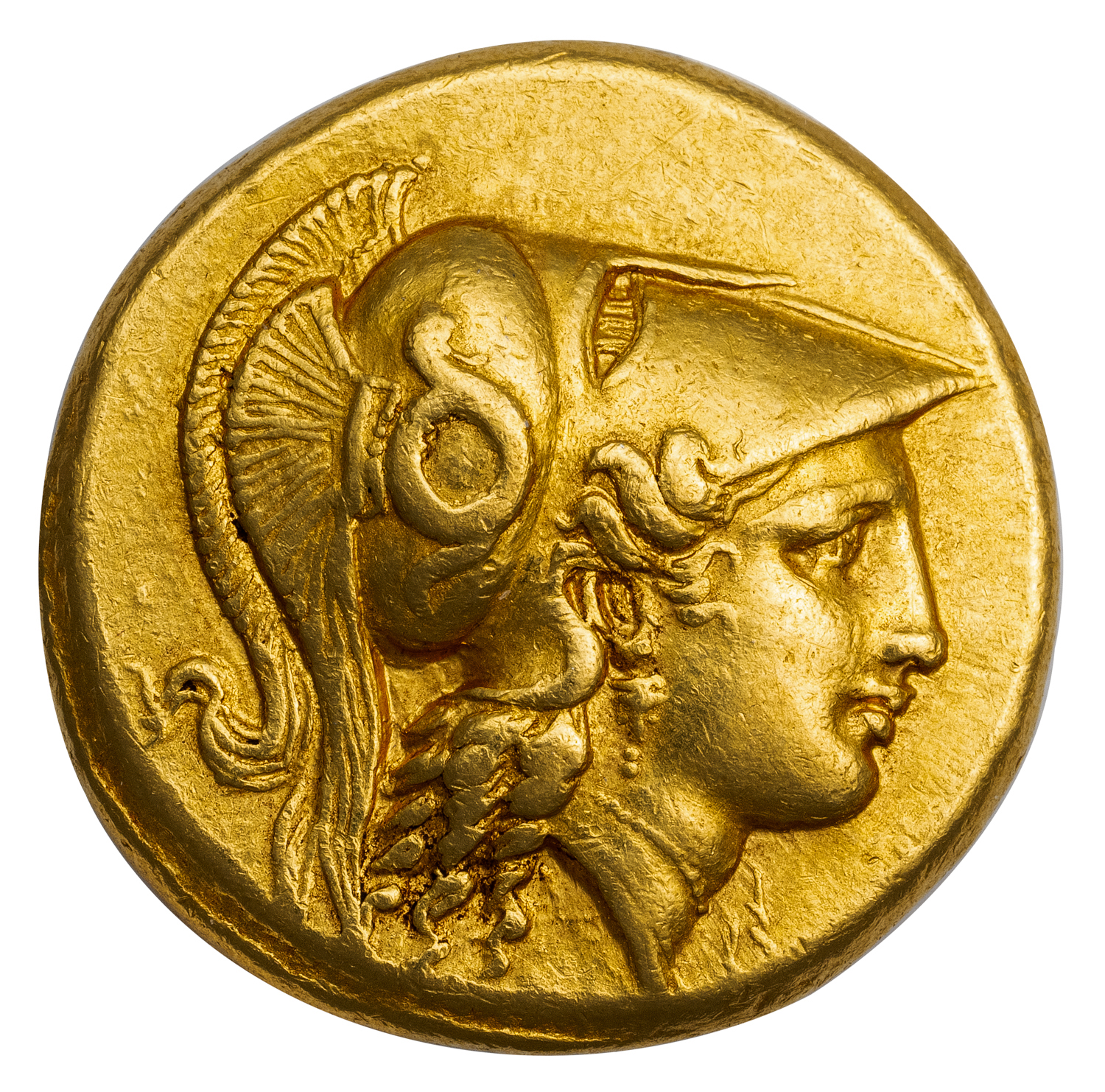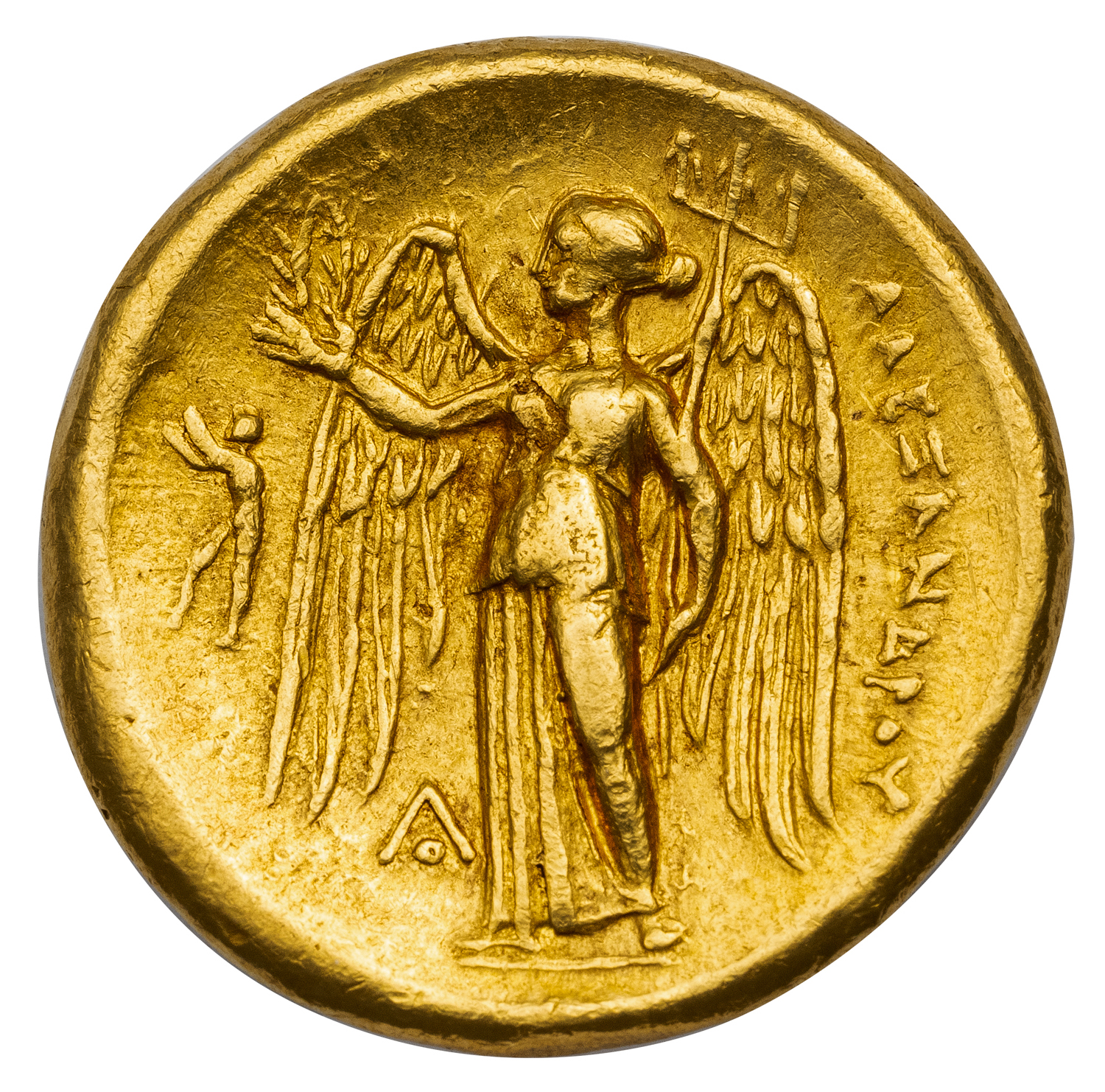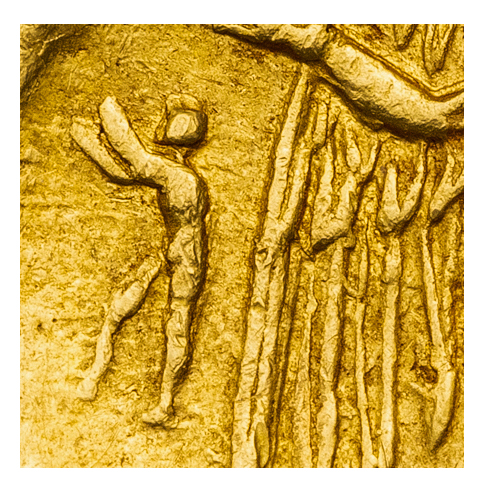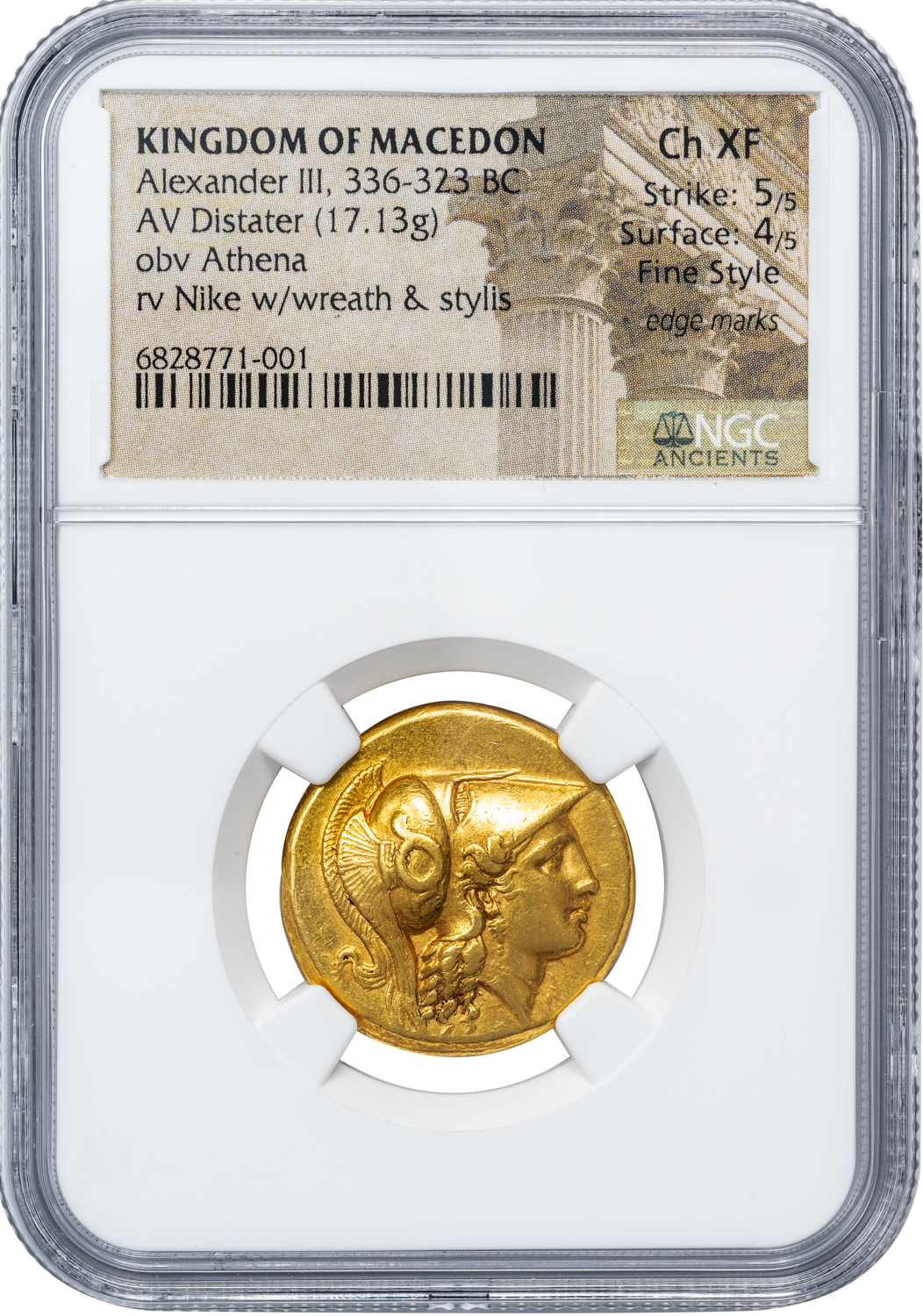ALEXANDER THE GREAT GOLD DISTATER – RARE EMISSION WITH PANCRATIST SYMBOL – CHOICE XF FINE STYLE NGC GRADED GREEK MACEDONIAN COIN (Inv. 19164)
SOLD
19164. KINGDOM OF MACEDON. ALEXANDER III, THE GREAT, 336–323 BC.
Gold Distater (2 Staters), 17.13 g, 23 mm. Lifetime issue of “Aegae,” ca. 336–323 BC.
Obv. Head of Athena right, wearing large Corinthian helmet with snake ornament below the plume. Rev. ΑΛΕΞΑΝΔΡΟΥ, Nike standing, looking left, holding wreath in right hand and stylis over left shoulder, athlete with raised hands in left field, ΛO control monogram below left wing.
Price 196; Noe, Sycion 9; Lacroix, “Quelque aspects de la numismatique Sicyonienne,” Revue Belge de Numismatique 1964, pp. 52 ff., pl. II, no. 5; ANS 1944.100.29473 (same obverse die).
Ex “Kyrios” Collection, previously ex Collection of a Scottish sea captain, Spink 23007, 10/3/2023, lot 43 = Spink 9026, 10/1/2009, lot 838 = Belgravia Auction Gallery, Malta, 7/1/2009, lot 1133, purchased after the sale.
NGC graded CHOICE XF, Strike 5/5, Surface 4/5, “FINE STYLE,” “edge marks.” This distater type with the athlete figure is quite rare, with only two other specimens in market records of the last 25 years.
The male figure used as a symbol on the reverse of this distater has perplexed numismatists over the years. The raised arms have sometimes inspired comparison to the pose of an orator haranguing the crowd while the bent knees have tended to suggest that the figure must be in the act of leaping rather than speech–making. As such, it was sometimes compared to the boy raising a fillet over his head who often appears on Alexander–type coins of Sicyon. Most recently, however, the figure has been thought to represent a wrestler leaping towards his opponent and is commonly considered a participant in the pancratium—the most brutal grappling sport to appear in Greek athletic games.
The pancratium (literally meaning “all power”) combined aspects of wrestling, boxing, but also permitted kicking, choke holds, and joint locks, which made it somewhat akin to modern mixed martial arts. Only biting and eye gouging were forbidden. The pancratium was considered “the best and most manly event in the Olympics” by Philostratus, but it was also used as a military training exercise by the Spartans. The sport is particularly interesting in the Macedonian context of this coin. Doxippus, a former Greek pancratist serving in the army of Alexander the Great was insulted by a Macedonian soldier named Coragus during a banquet. When the situation came close to violence it was agreed that the men would settle their differences in a duel. At the designated time, Coragus appeared fully armed and armored while Doxippus arrived nude and armed only with a club. Thanks to his skill in the pancratium, Doxippus easily defeated Coragus and stood with his foot on his opponent’s throat when Alexander ordered the bout to end. This victory of a Greek over a Macedonian had unfortunate consequences for Doxippus. In revenge for defeating their champion, elements of the Macedonians framed the pancratist for stealing a golden cup. Under the circumstances, Doxippus felt honor bound to commit suicide.

